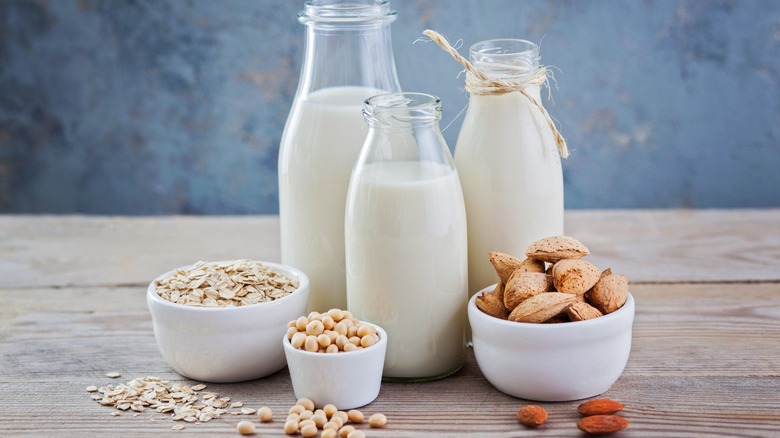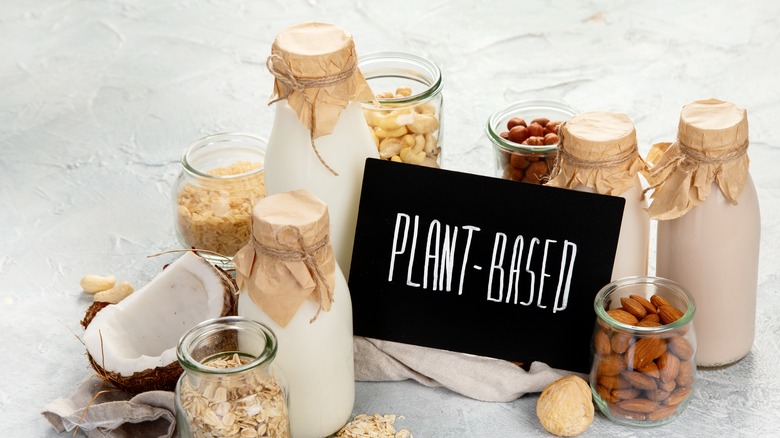Dietician Explains How To Boost Your Calcium And Protein Intake If You Only Drink Plant-Based Milk
While plant-based milk might once have been seen as a niche product, today it's full-on mainstream and in fact, is projected to make up about a third of all milk sales within the next few years. There are some very good reasons to opt for a dairy-free alternative — not only is plant milk better for the planet (fewer cows equal less greenhouse gas emissions), but it also tends to be lower in saturated fat. That being said, there are some drawbacks as well, most significantly the fact that many types of plant milk are lower in protein and calcium than dairy milk.
Mashed spoke to Toby Amidor, MS, RD, CDN, FAND, an award-winning nutrition expert and Wall Street Journal best-selling author of "Up Your Veggies: Flexitarian Recipes for the Whole Family," about this issue. Amidor acknowledged that this could present a problem for those who choose to avoid dairy.
According to Amidor, soy milk generally makes for an acceptable substitute as its protein and calcium levels aren't much lower than that of dairy milk. She said, "The only milks that provides the 13 essential nutrients as cow's milk (or close to it) is soy milk."
What can you do if you prefer a plant milk other than soy?
If you and your children just drink dairy alternatives for the taste, Toby Amidor recommends adding some dairy to your diet. She said, "They still should be taking in three servings of [dairy] milk and dairy products or soy milk to meet their nutritional needs." However, if you're vegan or lactose-intolerant and hate soy milk, consider how much calcium and nutrition your plant-based milk has. Each kind is different, so Amidor advises people to "read the nutrition facts panel."
If protein is a concern, Amidor also points out that pea and flax milk both have the recommended 8 grams. So these plant-based milks would make suitable alternatives in this regard. However, she recommends three servings of soy milk a day if your diet doesn't allow for dairy. According to Amidor, other plant-based milks may have the necessary protein or calcium but overall, they lack the "full panel of nutrients that you find in cow's milk and soy milk."
Amidor also advises anyone who doesn't drink dairy or soy to find other ways to implement protein in their diets. She said, "I would recommend selecting other sources of plant-based protein like beans or tofu or adding animal proteins like eggs and fish to the diet."

